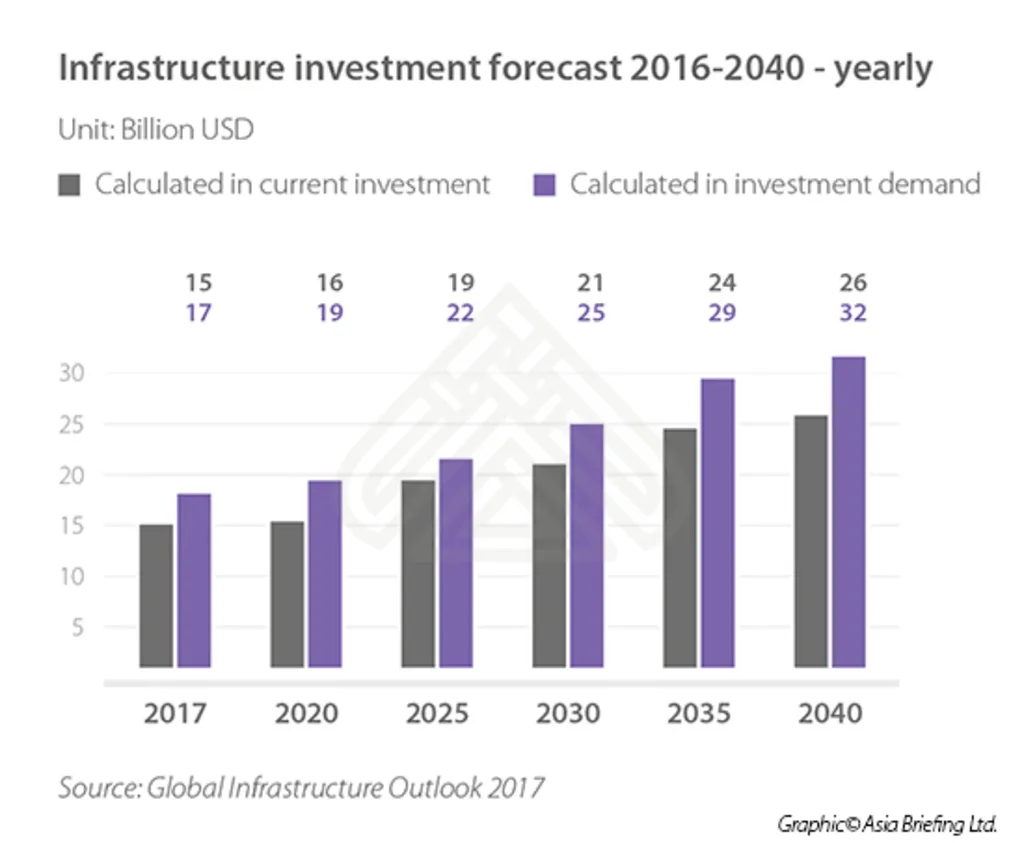Vietnam has made great strides in infrastructure development through public-private partnerships (PPPs). Since the inception of Vietnam Public-Private Partnership Projects in 1997, the country has mobilized nearly US$70 billion across 336 projects. These collaborations have played a crucial role in improving transportation, energy, and urban development. As Vietnam continues to modernize, PPPs are expected to remain a vital tool in meeting the nation's growing infrastructure needs.
The Growing Need for Infrastructure Investment

Vietnam’s rapid economic growth demands continuous infrastructure improvements. The Asian Development Bank estimates that the country will require around US$480 billion in infrastructure investments by 2030. However, the government can only allocate about $15-18 billion annually, while actual needs are around $25-30 billion. This gap highlights the importance of attracting private sector investment through effective PPP models.
Currently, only 10% of Vietnam’s infrastructure is financed by the private sector. Compared to other middle-income nations, this is significantly low. Expanding private sector participation will be key to meeting the country’s infrastructure goals. Increased investments in roads, railways, and energy projects will not only improve connectivity but also boost overall economic productivity.
Read Also: Eyeing Vietnam Infrastructure Investment Opportunities
Vietnam Public-Private Partnership Projects: Legal Framework and Investment Climate
To support PPP growth, the government implemented the 2021 Law on PPP. This legal framework addresses investor concerns, reduces project delays, and enhances transparency. With clear guidelines in place, Vietnam aims to encourage more private investment and ensure smoother execution of infrastructure projects.
Infrastructure investment already accounts for 5.7% of Vietnam’s GDP—the highest in Southeast Asia. Additionally, 53% of Official Development Assistance (ODA) received by Vietnam from 2010 to 2017 was directed toward infrastructure, showing the sector's economic importance. With continued government support and regulatory improvements, Vietnam is positioning itself as a favorable destination for long-term infrastructure investment.
Read Also: Where to Invest? Vietnam Emerging Business Sectors Guide
Successful Vietnam Public-Private Partnership Projects
Several successful PPP projects have demonstrated the effectiveness of collaboration between the government and private investors. One notable example is the World Bank-financed Third Rural Transport Project, which rehabilitated over 3,100 kilometers of rural roads. This project significantly improved connectivity and boosted local economies by providing easier access to markets and essential services.
Another success is the expansion of urban transit networks, helping Vietnam’s major cities address congestion issues. Ho Chi Minh City’s metro system, developed under a PPP model, is set to enhance public transportation and reduce traffic congestion. Continued investment in sustainable infrastructure will further enhance economic growth and quality of life for residents.
The Umbulan Springs Drinking Water Supply Project is another landmark PPP initiative. It has improved access to clean water for over 1.3 million people, demonstrating how private sector collaboration can drive social development alongside economic progress.
Read Also: Understanding Vietnam Construction Market Outlook 2025
The Future of Vietnam Public-Private Partnership Projects
To meet infrastructure targets by 2024, Vietnam needs over $600 billion in investment. Expanding PPP opportunities can help bridge the financing gap. By fostering investor confidence and streamlining regulations, Vietnam can unlock more private capital and accelerate infrastructure development.
As cities expand and industrial zones grow, PPPs will be critical in developing smart cities, high-speed rail systems, and green energy projects. Vietnam is also expected to focus on digital infrastructure, ensuring a robust foundation for the nation’s digital transformation.
Vietnam Public-Private Partnership Projects will remain essential in addressing the growing infrastructure demands. With strong government support, improved legal frameworks, and increasing investor interest, PPPs can drive the country’s development for years to come, ensuring long-term prosperity and enhanced living standards for its citizens.







